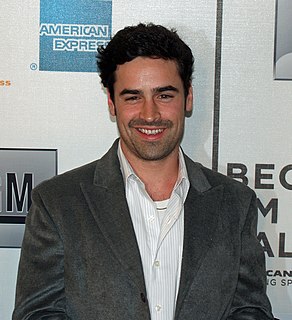A Quote by Ridley Scott
Taking a comic strip character is very hard to write. Because comics are meant to work in one page, to work in frames with minimalistic dialogue. And a lot of it is left to the imagination of the reader. To do that in film, you've got to be a little more explanatory. And that requires a good screenplay and good dialogue.
Related Quotes
Reading aloud sounds like a good idea, but honestly, it doesn't work very well. Good dialogue in a book doesn't actually bear much resemblance to real-life dialogue. For example, if you've ever seen a word-for-word transcript of people talking, it doesn't read off the page very well. The trick is to make it *seem* like it's being spoken, not to make it speakable.
I can work a lot faster when I'm writing a screenplay than when I'm writing a play because, if I'm having a problem with a scene or something, I can just be writing it in a way where there's no dialogue, or find a way to make sound do the work that I want to do or a close-up do the work that I need to do.
In comics the reader is in complete control of the experience. They can read it at their own pace, and if there's a piece of dialogue that seems to echo something a few pages back, they can flip back and check it out, whereas the audience for a film is being dragged through the experience at the speed of 24 frames per second.
Nothing is more satisfying than to write a good sentence. It is no fun to write lumpishly, dully, in prose the reader must plod through like wet sand. But it is a pleasure to achieve, if one can, a clear running prose that is simple yet full of surprises. This does not just happen. It requires skill, hard work, a good ear, and continued practice.
On the whole, dialogue is the most difficult thing, without any doubt. It's very difficult, unfortunately. You have to detach yourself from the notion of a lifelike quality. You see, actually lifelike, tape-recorded dialogue like this has very little to do with good novel dialogue. It's a matter of getting that awful tyranny of mimesis out of your mind, which is difficult.
Something that you should take particular notice of is the fact that the best scripts have very few explanatory passages. Adding explanation to the descriptive passages of a screenplay is the most dangerous trap you can fall into. It’s easy to explain the psychological state of a character at a particular moment, but it’s very difficult to describe it through the delicate nuances of action and dialogue. Yet it is not impossible.
I don't think comics use iconic forms - or they don't have to. But that makes them even more "cool," if I understand the idea. One has to be quite involved to make comics work. Signals have to be decoded on both the verbal and visual level, simultaneously, and the reader must do a lot of cognitive work between panels as well. Comics definitely need an engaged reader.
I'd always enjoyed the comics more, and felt that as long as I was unemployed it would be a good chance to pursue that and see what response I could get from asyndicate, as I didn't have anything to lose at that point. So I drew up a comic strip - this was in 1980 - and sent it off and got rejected. I continued that for five years with different comic strip examples 'til finally Calvin and Hobbes came together. But it's been a long road.






































